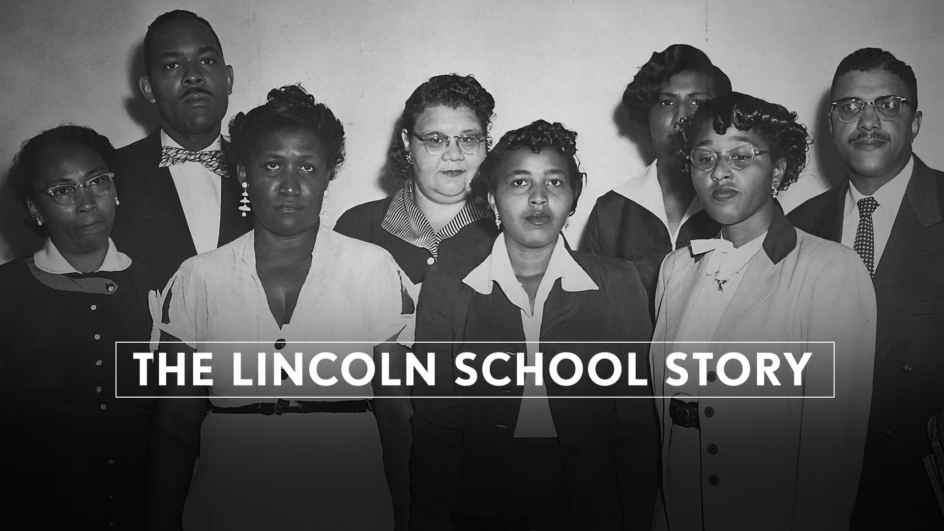The Lincoln School Story is a new documentary film that tells the inspiring story of a group of courageous African American mothers who fought for school integration in 1954 in the town of Hillsboro, Ohio. After the Brown v. Board of Education decision, these mothers marched with their children to the white elementary school, demanding admission—only to be turned away. Their lawsuit against the school board was one of the first test cases of the Brown decision. Despite segregationist redistricting, cross burnings, job losses, and legal threats, they marched for two years in one of the longest sustained civil rights marches in American history.
Produced by Ohio Humanities and award-winning filmmaker Andrea Torrice, The Lincoln School Story is the first documentary to feature these women and highlight their role in the early civil rights movement.
There are several ways to watch The Lincoln School Story:
- You can stream the documentary on demand online for free on PBS.
- If you represent an Ohio organization, fill out this form to request the film for a screening or related event.
- If you are outside Ohio, you can purchase a copy through Bullfrog Films.
- The film is airing on public television stations nationwide and streaming on Passport after July 1, 2024, distributed by American Public Television. To learn more and find an airtime near you, visit your local PBS station's website.
Are you interested in discussing the film with others? The following questions will spark meaningful conversations.
- What connections can you make between the Hillsboro march and the larger context of other social protests, past or present?
- Why do you think it was important for the mothers to challenge segregation both in the courtrooms and on the streets of their local community?
- In what ways did this protest act as a model for future social action against racial inequality? In what ways might this protest inspire social change today?
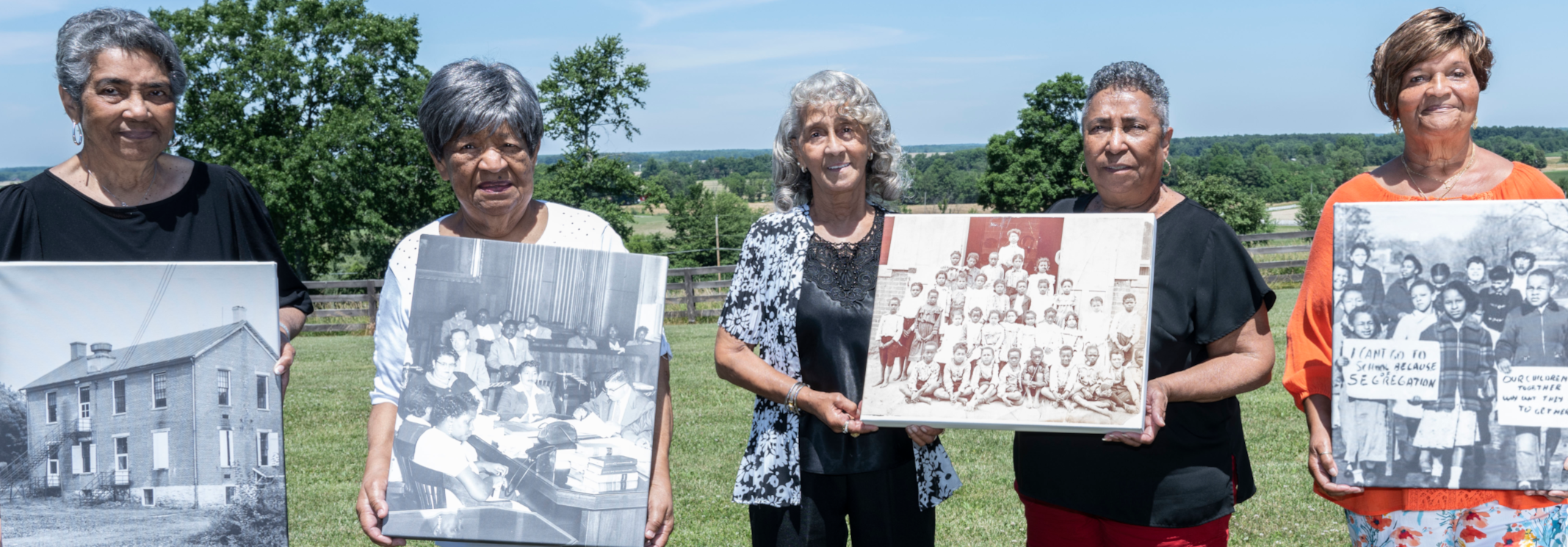
Many of the Lincoln School students who marched are still alive today. By sharing their story, the marchers hope to inspire others to continue the work they started.
Their commitment to keeping the story of the march—and their mothers—alive reminds us of the importance of education and of how recent the civil rights movement is in our past.
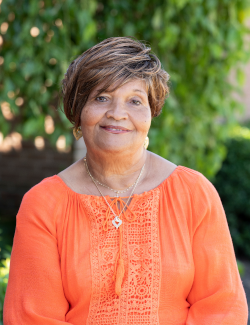
Eleanor Curtis Cumberland
Mother: Imogene Curtis
“People would come to my mother for a lot of different things, like if they were having housing discrimination or job discrimination or even problems with the courts. My mom wrote letters to prisons and lawyers and to judges on people's behalf. So I know what my mom did. With every fight, you have to have somebody leading it.”
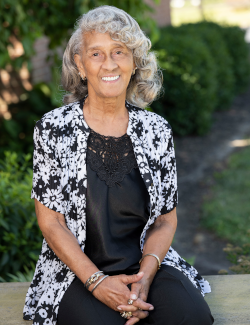
Joyce Clemons Kittrell
Mother: Gertrude Clemons
“At that time, the parents were very strict about learning. My dad always told me, ‘You do 100%. If you can do 150%, you do it.’ And so that kind of helped a lot, you know? We knew we had to do it because we'd have been right back where we were before if we didn’t—not allowed to go places and not allowed to do things.”
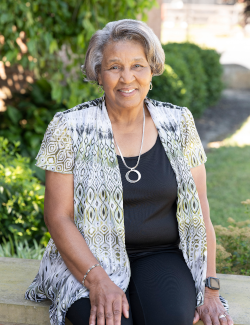
Myra Cumberland Phillips
Mother: Zella Mae Cumberland
“We've still got a long way to go, but I hope children today learn what we actually, really went through. And really, I never sat down and explained it all to my boys until after this (documentary) film came out. I didn't think they would be interested. I never did explain it to them when they were little. I just would say, ‘You better get an education.’ ”

Teresa Williams
Mother: Sallie Williams
“I have often been asked, how did we get along with kids after we got into Webster School. We would tell the difference from the kids who knew about the desegregation problem in Hillsboro. Because the kids who didn’t have a problem playing with us, it wasn’t being talked about in their homes. The kids who had a problem with the Black students knew about the desegregation problem in Hillsboro.”

Virginia Steward Harewood
Mother: Elsie Steward Young
“I mean, two or three months (of marching) was something. But we went for two years every day, rain or shine. I thought, ‘Why do we have to continue to do the same thing over and over when we knew they weren’t going to let us in?’ So, at 8, you can imagine what that was like.”

Carolyn Steward Goins
Mother: Elsie Steward Young
“(Being held back) wasn't nice. It wasn't fun at all. We already knew all that we had learned from the kitchen schools when they put us back. So we knew everything they were trying to teach us. It still bothers me. It makes me mad. But, you know, we met so many nice people. I wasn't fond of going back to school, but I enjoyed all the kids that I got acquainted with.”
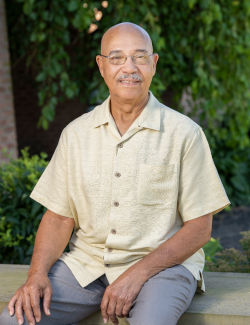
Ralph Steward
Mother: Elsie Steward Young
“I appreciate everything my mother did, because she made it easier for the Black kids to go to school. And we've had several that have graduated college. And it all stems from what happened in '54 to '56. I don't want people to feel sorry for me, but sorry for the way that we were treated. There's so many things we were not able to do because of our skin color. And it's not right. I would hope that they wouldn't ever want to go backward. We need to continually go forward.”
The Hillsboro march was covered by multiple print media outlets in the 1950s. You can explore some of these primary text sources below.
Since 2015, this story has garnered more attention in local and national news. Read more below!
More about the film
Andrea Torrice is the filmmaker of The Lincoln School Story. She is an award-winning documentary and educational filmmaker whose work has focused on key issues facing the communities of Ohio, many of which have national relevance. Her work has been supported by Ohio Humanities, the Ohio Arts Council, and the Stephan H. Wilder Foundation, amongst others.
The Lincoln School Story is distributed nationwide by American Public Television (APT) and WOSU Public Media.
APT is the the leading syndicator of high-quality, top-rated programming to the nation’s public television stations. Founded in 1961, APT distributes 250 new program titles per year and more than one-third of the top 100 highest-rated public television titles in the U.S. APT’s diverse catalog includes prominent documentaries, performance, dramas, how-to programs, classic movies, children’s series and news and current affairs programs. APT also licenses programs internationally through its APT Worldwide service and distributes Create®TV — featuring the best of public television's lifestyle programming — and WORLD™, public television’s premier news, science and documentary channel. More information at APTonline.org.
The mission of WOSU Public Media is to engage, inform and inspire our diverse community. An NPR and PBS affiliate licensed by The Ohio State University, WOSU is a noncommercial multimedia organization serving over two million citizens in Central Ohio through broadcast, digital, programming, public engagement, and education experiences. Learn more at wosu.org.
This project is supported, in part, by our generous conversation starters.
Support more stories
With your support, Ohio Humanities hosts programs and awards grants that support storytellers statewide, from museums to journalists to documentary filmmakers. Donate today to help us tell more stories.

